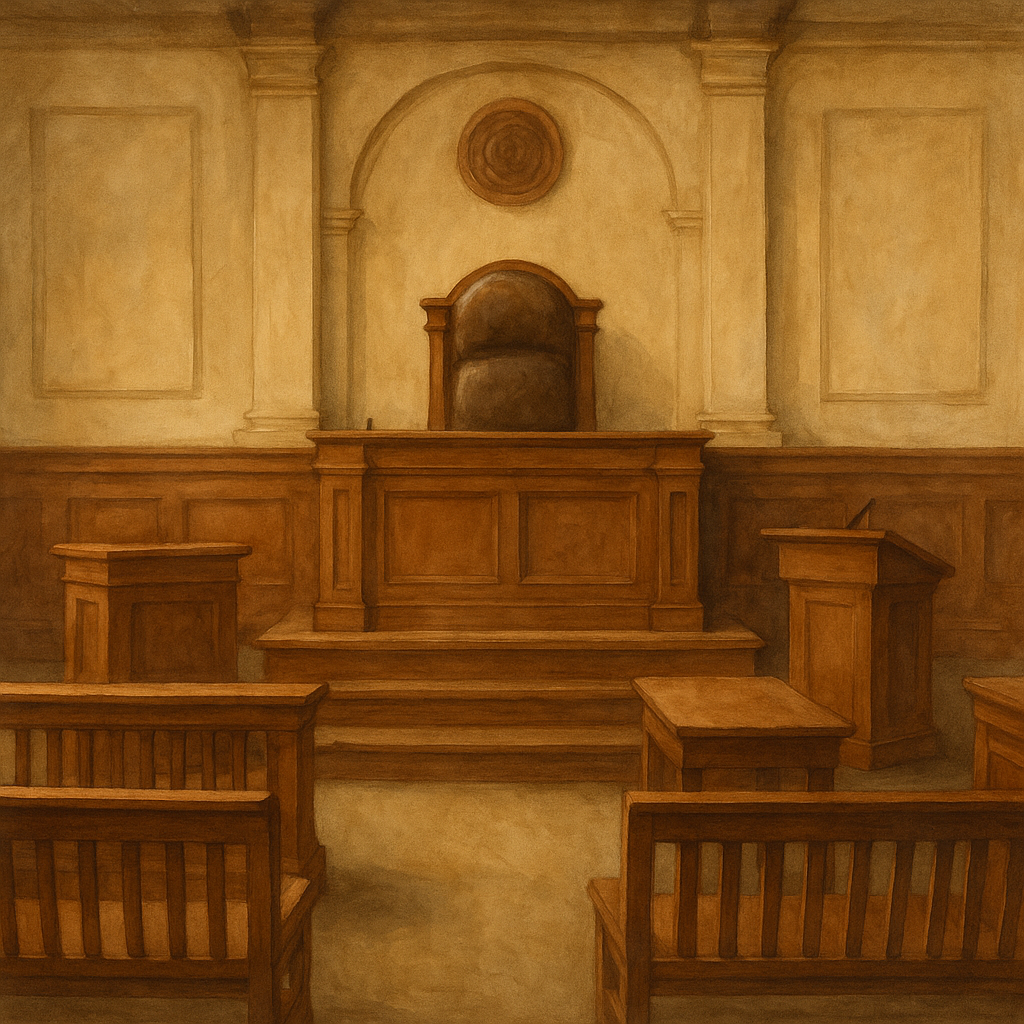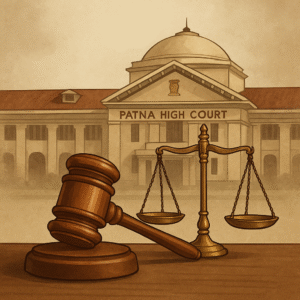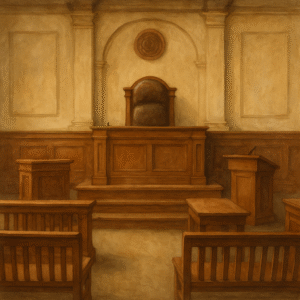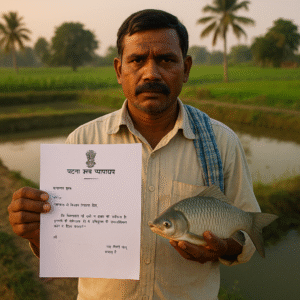Simplified Explanation of the Judgment
The Patna High Court, in a detailed decision delivered on 13 August 2020, reiterated that educational institutions must strictly adhere to the timelines and procedures laid down by the National Council for Teacher Education (NCTE) and the Supreme Court when seeking recognition and affiliation for teacher training courses.
The case arose from a writ petition filed by a private teacher training institution in Patna, which challenged the decision of the Bihar School Examination Board (BSEB) to grant affiliation from the academic session 2018–20, instead of 2017–19, even though the college had received NCTE recognition in May 2017.
The petitioner institution — a recognized B.Ed. and D.El.Ed. college — argued that the delay was caused by the Board and that its students for the 2017–19 batch should not suffer due to administrative delays.
However, the Court found that both the NCTE and the petitioner institution had failed to adhere to the mandatory schedule fixed by the Supreme Court in Maa Vaishno Devi Mahila Mahavidyalaya v. State of U.P., (2013) 2 SCC 617, and thus the college could not claim retrospective affiliation for a session that had already lapsed.
Background of the Case
- The college applied for permission to run a D.El.Ed. (Diploma in Elementary Education) course with an annual intake of 100 students.
- The Bihar School Examination Board issued a No Objection Certificate (NOC) on 18 May 2016.
- The college then applied to the NCTE Eastern Regional Committee at Bhubaneswar on 30 May 2016, which, after inspection, granted formal recognition on 2 May 2017 for the academic session 2017–19.
- The petitioner subsequently applied to the Board for affiliation on 4 August 2017, nearly three months after receiving NCTE recognition.
- The Board processed the application and granted affiliation on 3 January 2018, but made it effective only from the 2018–20 academic session.
The college protested this, arguing that once the NCTE had granted recognition, the Board was bound to grant affiliation from the same session. It also pointed out that similarly situated colleges had been granted retrospective affiliation.
Arguments by the Petitioner
- The college claimed that under Section 14(3)(b) of the NCTE Act, 1993, once recognition is granted, the affiliating body must grant affiliation.
- It relied on Regulation 8(10) of the NCTE (Recognition Norms and Procedure) Regulations, 2014, which mandates that affiliation must follow recognition.
- The petitioner cited the Patna High Court’s earlier Division Bench judgment in Rajendra Kishore B.Ed. College v. BSEB (2019), where similar relief had been given to other institutions.
- It contended that the delay in affiliation was caused by the Board’s administrative inaction and that denying affiliation for 2017–19 was unfair to its students.
Arguments by the Respondent Board
The Bihar School Examination Board, represented by the Government Pleader, opposed the petition, emphasizing the binding Supreme Court schedule for recognition and affiliation.
- The Board cited Maa Vaishno Devi Mahila Mahavidyalaya v. State of U.P. (2013) 2 SCC 617, which mandates that:
- Recognition by NCTE must be issued by 3 March of the year preceding the session.
- Affiliation by universities or boards must be granted by 10 March.
- Any recognition or affiliation granted after these dates would apply only to the next academic year.
- The Board argued that the NCTE’s recognition letter dated 2 May 2017 was issued after the cut-off date and that the college applied for affiliation after a delay of three months. Hence, affiliation could only start from 2018–20.
- The Board also referred to the Supreme Court’s ruling in Anuragi Devi Degree College v. State of U.P. (2016) 12 SCC 517, which held that admissions without prior affiliation are illegal, and the results of such students cannot be declared.
Court’s Analysis and Findings
Hon’ble Justice Mohit Kumar Shah carefully examined both sides’ arguments and the governing provisions of the NCTE Act, 1993, and Regulations, 2014.
- Recognition vs. Affiliation:
The Court reaffirmed that recognition by NCTE and affiliation by an examining body are two distinct but complementary processes. Once NCTE grants recognition, the affiliating authority should ordinarily follow suit. However, both processes must comply strictly with the time schedule set by the Supreme Court. - Binding Supreme Court Schedule:
Since NCTE granted recognition only on 2 May 2017 (beyond the 3 March deadline), and the college applied for affiliation on 4 August 2017 (beyond the 10 March limit), the college’s request for 2017–19 affiliation was contrary to law. - Delay by the College:
The Court observed that the petitioner’s own delay of three months in applying for affiliation disqualified it from seeking equitable relief. - Illegal Admissions:
The Court noted that the college admitted students for 2017–19 without affiliation, violating Regulation 8(10) of NCTE Rules, 2014. Hence, those admissions were unauthorized. - No Discrimination:
The petitioner’s reliance on Rajendra Kishore B.Ed. College was rejected since that judgment applied only to colleges recognized before 2016–18 and not to new institutions under the 2014 Regulations. - Conclusion:
The Court found no merit in the petition and dismissed it, holding that the Board acted fairly in granting affiliation from 2018–20 in accordance with the Supreme Court schedule.
Significance or Implication of the Judgment
- For Educational Institutions:
This ruling underscores that strict compliance with NCTE and Supreme Court timelines is mandatory. Institutions cannot claim retrospective benefits due to their own delay or procedural lapses. - For Regulatory Authorities:
The decision empowers the Bihar School Examination Board and similar bodies to deny retrospective affiliation if timelines are not followed. It reinforces accountability and transparency in teacher education governance. - For Students:
The judgment protects students from being misled by unauthorized institutions. It warns that admission without formal affiliation can make degrees invalid, regardless of the institution’s recognition status.
Legal Issues Decided and the Court’s Reasoning
- Whether NCTE recognition automatically entitles an institution to immediate affiliation?
→ No. Both recognition and affiliation must comply with the prescribed timeline. - Whether affiliation can be made retrospective due to Board delay?
→ No. The Supreme Court’s schedule is binding; violation amounts to contempt. - Whether admissions without affiliation are valid?
→ No. Such admissions are illegal under NCTE Regulation 8(10).
Judgments Referred by Parties
- Rajendra Kishore B.Ed. College v. Bihar School Examination Board & Ors., CWJC No. 19046 of 2018 (Patna HC, 2019).
Judgments Relied Upon or Cited by Court
- Maa Vaishno Devi Mahila Mahavidyalaya v. State of U.P. & Ors., (2013) 2 SCC 617.
- Anuragi Devi Degree College v. State of U.P., (2016) 12 SCC 517.
- The Vice-Chancellor, Aryabhatta Knowledge University v. State of Bihar, 2018 (4) PLJR 821.
Case Title
National B.Ed. College of Higher Education v. The State of Bihar & Ors.
Case Number
Civil Writ Jurisdiction Case No. 3936 of 2019.
Citation(s)
2021(3) PLJR 98
Coram and Names of Judges
Hon’ble Mr. Justice Mohit Kumar Shah.
Names of Advocates and Who They Appeared For
- Mr. Niranjan Kumar — for the petitioner.
- Mr. Kameshwar Kumar (GP-17) — for the State.
- Mr. Sunil Kumar Singh & Mr. Ranvijay Singh — for NCTE.
Link to Judgment
MTUjMzkzNiMyMDE5IzEjTg==-SK3gneQpxF0=
If you found this explanation helpful and wish to stay informed about how legal developments may affect your rights in Bihar, you may consider following Samvida Law Associates for more updates.








